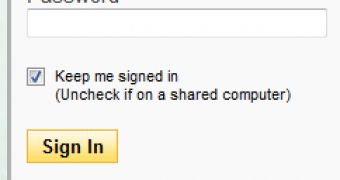A survey commissioned by PayPal in September with the help of the Center for Internet Safety revealed some interesting figures when it comes to the way Australians handle their online safewords.
The paper also highlights the purpose of passwords and the way they're abused by cybercriminals to take over our digital assets.
The study included 1000 Aussies, evenly split as age and gender in order to make the results as precise as possible.
Interestingly, while 63% of the overall respondents use the same character string on more than one online account, if we take a look at the younger internauts, aged between 18-24, 77% of them manage their accounts with the same protection code.
Other numbers show that 7% never change their passwords and almost half of those interviewed only change it when they're required by an automated system.
Because in many cases hackers rely on guesswork to access online assets, people were asked if they considered their safewords as being easy to predict. Only 10% answered affirmative and only 20% choose personal information to act as protection.
An alarming thing is that almost half of the respondents forget their passwords once a month and 89 of the 1000 people forget it more than once a week. In order to prevent this, 45% write them down.
Experts always advise that a unique password should be utilized for each account, especially when it comes to the more important ones. Also, personal information should not be taken into consideration when conceiving a safe word. Dictionary words are also not recommended, instead special characters, numbers and uppercase letters should be used in a string that's at least 8 characters long.
To create a really strong password, you can follow these steps: - think of a phrase (for instance, the title and artist of a song like “John Paul Young – Love is in the air”); - take each word's first letter to create a sequence. In this case you'll get “JPYLiita” (make sure to keep the case of the letters); - to make the password even stronger, you can add the year in which the song was released and you can even do small tweaks like replacing the “a” with “@”; - the final result in this case would be “JPYLiit@78”, which is a password no hacker will ever guess.

 14 DAY TRIAL //
14 DAY TRIAL //